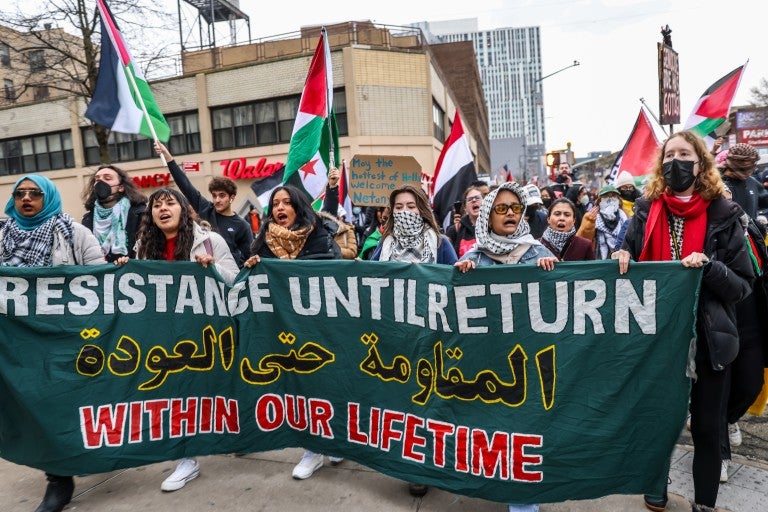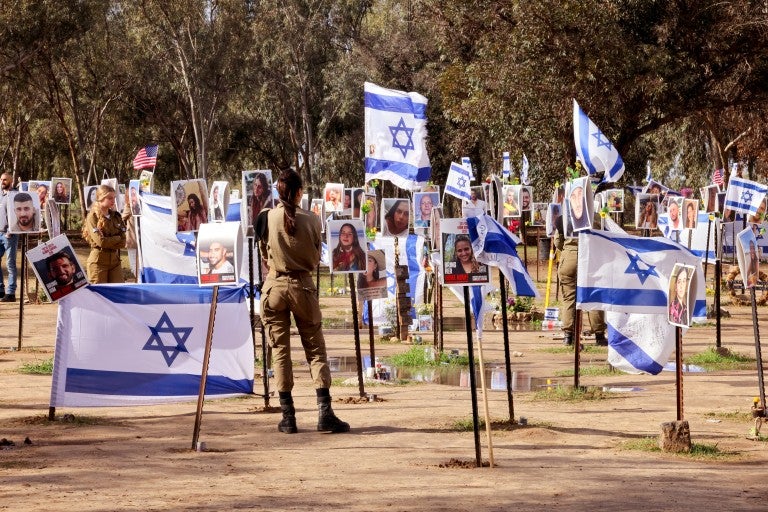March 3, 2017 — Atlanta, GA
Dov Wilker, AJC Atlanta Regional Director
Atlanta Journal-Constitution
“Tonight, as we mark the conclusion of our celebration of Black History Month, we are reminded of our Nation’s path toward civil rights and the work that still remains. Recent threats targeting Jewish Community Centers and vandalism of Jewish cemeteries, as well as last week’s shooting in Kansas City, …, we are a country that stands united in condemning hate and evil in all its forms.” – President Donald Trump
These words have had a significant impact on me. As a father of two young children, I continually ask myself how many hate incidents are too many.
In the first two months of 2017, there have been more than ninety bomb threats to American Jewish institutions, including in Atlanta and Augusta, and hundreds more other antisemitic incidents across the United States. They have targeted Jewish Community Centers (JCCs), schools, synagogues, and organizations, and victimized people of all ages, Jews and non-Jews, who attend these places not only for worship, but also for their livelihoods, their jobs. Why are such crimes on the increase?
Antisemitism is hardly new. In fact, it has been called “the oldest hatred.” There has been an upsurge in recent years in Europe and Latin America, but its resurgence on U.S. soil has come as a surprise, sparking great concern.
My first experience with this type of fear was during the First Gulf War. I was then a student at a Jewish elementary school, and vividly recall entering the building and seeing an armed guard posted at the front door. As friendly and warm as he was, his presence burned an image in my mind. For the first time, I felt and understood that crimes of hate were personal. Despite undoubted strides that have been made, Jews and other minorities, me among them, continue to be targets.
Which brings me back to today.
These instances of verbal assault, vandalism, physical attacks, and even murder hurt not only members of the Jewish community, but also our friends, partners, and other innocent bystanders.
At American Jewish Committee, we work ceaselessly to strengthen relationships with our non-Jewish community partners — religious, ethnic, and international — because we know there is strength in numbers and that we are all vulnerable. We are only as safe as our fellow citizens and next-door neighbors.
So, what can we do?
Make no mistake, this is a group effort. Support from our political leadership and law enforcement is vital. It was reassuring to hear President Trump take an explicit stand against hate in his address to Congress. It was moving to see Vice President Pence working alongside Muslims, Jews, and Christians in St. Louis, together, helping repair vandalized headstones in a Jewish cemetery. And the arrest of a man on Friday suspected of making some of the threatening calls gives hope that law-enforcement authorities may be making progress in getting to the bottom of this wave of hate.
While a national effort is critical, this is, in many respects, also a local community issue, and we are very fortunate to have the benefit of Mayor Reed’s leadership. He has consistently stood with the Jewish community. Indeed, he was the third signatory of the “Mayors United Against Antisemitism” campaign, which, to date, has been signed by over 500 mayors in the United States and Europe, including many in this state. Further, our local police and the Georgia Bureau of Investigation take these incidents seriously, responding quickly and investigating thoroughly. We are confident that such swift and effective reaction will continue.
A few years ago, the U.S. Department of Homeland Security created a campaign called “see something, say something” to help protect against terrorism. The same strategy should apply to combating purveyors of hate. Law enforcement and politicians cannot be everywhere. We, as a community of friends and neighbors, need to increase vigilance on the streets, in the workplace, and in cyberspace.
Religious and ethnic leaders, media and academics, and YOU all have a role to play. Antisemitism is not just a Jewish problem; it is an American problem and a human problem. Whenever people are victimized because of their faith or ethnicity, we need to denounce them in partnership. I have received many calls from friends in the non-Jewish community sharing their concern and asking how they can help.
As the great Jewish sage Rabbi Hillel said: “If I am not for myself, then who will be for me? And if I am only for myself, then what am I? And if not now, when?”
It is imperative that we continue to speak out respectfully and strongly, support victims, and educate others about the impact of these cowardly/gutless attacks.
Thinking about my children and my neighbors’ children, I look forward to a day when all children learn about antisemitism and racism from a textbook, as history, instead of experiencing its wounds firsthand.
Dov Wilker is Atlanta Regional Director, American Jewish Committee.


